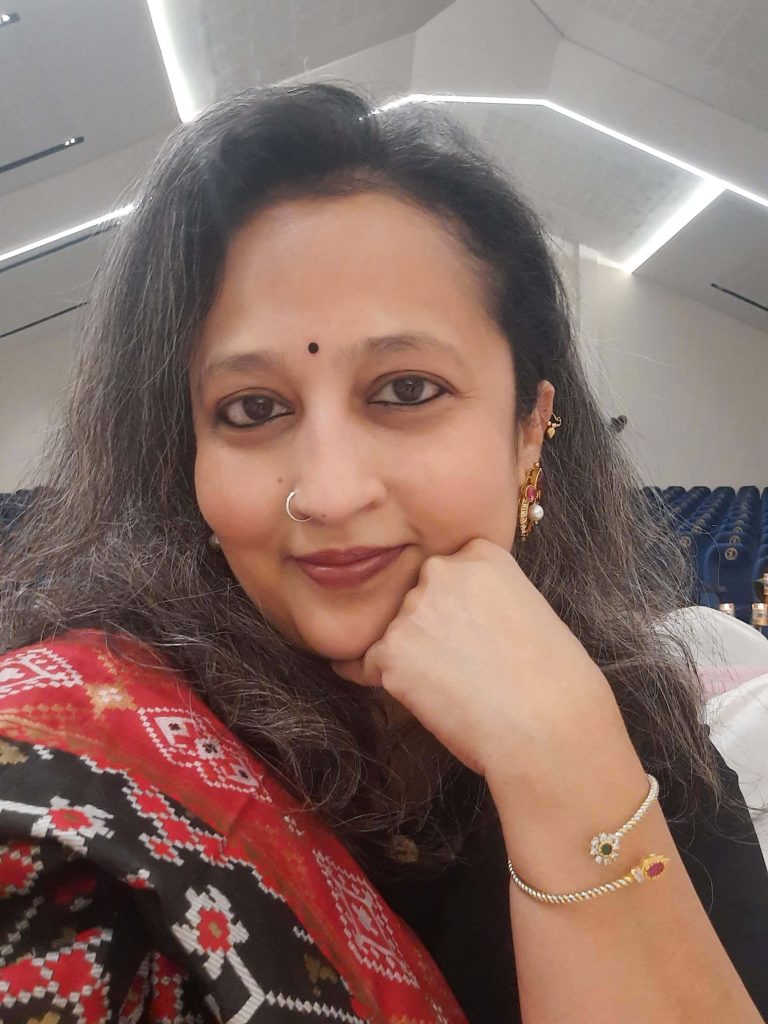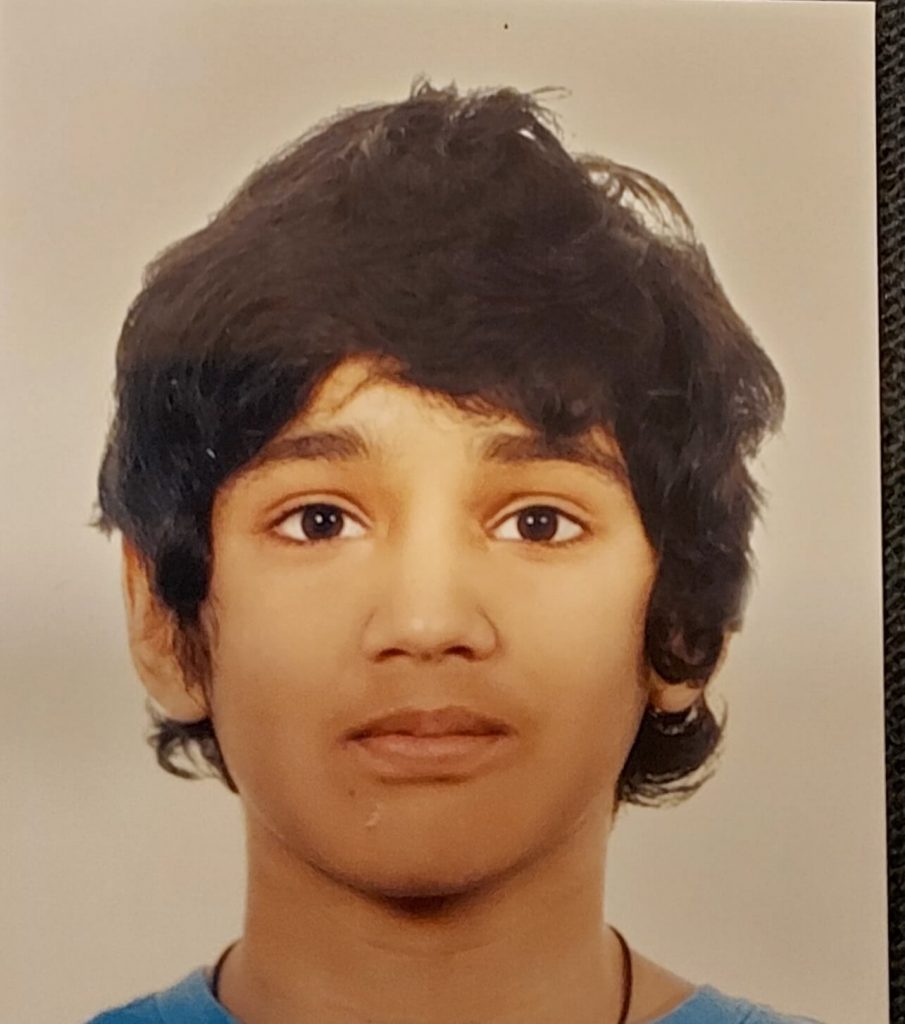Our Schools
Table of Contents
Here is the latest blog from our ‘Parent Blogger’ series, our endeavor to encourage parents to be active participants of the Ekya Community by sharing their expertise, interests, and experiences on our blogs. As a parent blogger from Ekya School, ITPL, Ms. Sindhu Roy has shared with us this blog on ‘Teen Brain Condition’ discussing the absurd behavior of teenagers and logical reasons behind it. Enjoy this interesting read.
The Teen Brain Condition
“I saw a standup on YouTube recently which made me understand the whole ‘who-took-over-my-sweet-children’s-soul’ dilemma that I had been having since they turned teenagers. This lady describes how the very breath that came out of her nostrils would make her teen daughter irritable. She could not chew cereal in her own home without getting glared at by her daughter. The comic summed it up by saying that it was part of God’s plan to make children so difficult to manage in their adolescence that it made going away to college easier to bear.
Once I stopped laughing with what I admit was some malevolence – I started thinking about the actual wiring that changes in our beautiful kids’ brains during this phase. My boy who used to make me a tea when I had a headache now remains AWOL behind his book in his room. My sweet girl who tagged along with Mom everywhere now dumps me in a flash if her BFF calls. Not to mention the way in which they develop partial paralysis the minute they enter the home. They seem to exist in a dream state where tubes of toothpaste have no caps, ties crawl behind the shoe-rack and water bottles that have gone back to meet their maker. Amen. Consequences of actions don’t seem to figure anywhere in their emotional, hyperconsciousness. Unwilling to surrender, I did some digging around with Big Brother Google, and share here with you a little bit of insight into the teen brain – yes that is a thing.
The Developing Prefrontal Cortex
This is the reason why most teens don’t realize the consequence of why a movie with all their friends the day before an exam is just not a good idea. The prefrontal cortex – the frontal part of the brain – matures much after puberty. In fact, it is not fully developed until the age of about 25. That’s right, you can expect a decade more of immature decisions and war of wills around choices with your teen.
This can take a dangerous turn if, in the heat of the moment, even a more rational teen gets into a car driven by a drunk friend. We need to reinforce the connection between actions and consequences through constant repetition – until the teen disappears behind a slammed door of course.
The Teen Brain Needs More Sleep
As school pressures and projects pile up during high school – paradoxically it is during this phase that the children need the most sleep. A fact that most of us in India seem to overlook. The sleep hormone melatonin waxes and wanes later in teens – thus making it difficult for them to be up for the school bus. They are not just being lazy – who knew! Teens actually need 9-10 hours of sleep a night failing which they may fall prone to depression, anxiety, lack of attention, irritability or even in some pre-disposed cases – more severe mental ill health.
The Driver of the Teen Brain – Amygdala
This little part of the brain at the back develops earlier than the prefrontal cortex – and this fella is responsible for our emotions, impulses, aggressions – I can see all you teen parents making the connection already. Imagine the teen engine that is being driven mostly by an emotional, reactive type – without a cautious backseat driver who has an eye on the road. Small wonder then that most situations or challenges are met with outbursts and uncontrollable emotions, and an inability to see the big picture. Wait – now I realize why my son wept tears of genuine grief on missing the first-day first show of the latest Avengers movie. I blame his Amygdala!
These insights have helped me rethink my strategy for dealing with my loving but increasingly challenging brood. Implementation is another challenge altogether. Next time – let us explore a few gems on how to deal with these Amygdala driven, prefrontal cortex deficient yet beautiful teens of ours.”
A brief profile of Ms. Sindhu Roy:
Ms. Sindhu Roy is the parent of Amala Roy, Grade 8 and Siddhant Roy, Grade 9, students of Ekya School, ITPL. She is the partner at S&A Bespoke, a startup focused on content marketing, e-learning, and photography. Ms. Sindhu Roy is an expert in content creation and e-learning with 15 years of experience in the field. Her writing is based on meticulous research and personal observation.
More stories from Ekya:
- Environment Week at Ekya School ITPL
- Visit to Madras Engineering Group (MEG ) – Ekya School ITPL
- WEP 2019 – Experience/ Learnings – Roshan. G. Nair, Grade 10, Ekya School ITPL
- WEP 2019 Experience/ Learnings – Diya Baid and Aashmika Varma, Grade 10 Ekya School ITPL
- International Yoga Day at Ekya School, ITPL
International Yoga Day at Ekya School, ITPL

























 Our students learnt about the practice of Yoga and its power to heal the entire body. Yoga is the best medicine that any doctor can ever prescribe. Ekya, ITPL organized sessions and special assemblies for the Students to mark the celebrations of world yoga day. Different asanas were performed by children across grades. Students from Grade 1 - 4 practiced meditation, breathing exercises followed by Suryanamaskar, chakrasana, dhanurasana and vrikshasana. Grades 5-8 started the day with a warm up session, stretch exercises, meditation followed by Suryanamaskar, Vajrasana and pranayam.
Our students learnt about the practice of Yoga and its power to heal the entire body. Yoga is the best medicine that any doctor can ever prescribe. Ekya, ITPL organized sessions and special assemblies for the Students to mark the celebrations of world yoga day. Different asanas were performed by children across grades. Students from Grade 1 - 4 practiced meditation, breathing exercises followed by Suryanamaskar, chakrasana, dhanurasana and vrikshasana. Grades 5-8 started the day with a warm up session, stretch exercises, meditation followed by Suryanamaskar, Vajrasana and pranayam.
More Stories From Ekya:
A Roundup of Events at Ekya School JP Nagar – June 29th 2019


 Competitions - Poetry Recitation, Pot Painting, Fireless Cooking
Students had a wonderful start of this week with the various competitions for the students. Grades 1 to 4 were busy with the Poetry Recitation, Grades 5 to 7 had Pot Painting whereas Grade 8 - 10 had Fireless Cooking
Competitions play a major role in motivating students to perform and excel and offer a lot more reward than just the winning prize. Competitions offer a chance for participants to gain substantial experience, showcase skills, analyze and evaluate outcomes and uncover personal inhibitions.
Competitions - Poetry Recitation, Pot Painting, Fireless Cooking
Students had a wonderful start of this week with the various competitions for the students. Grades 1 to 4 were busy with the Poetry Recitation, Grades 5 to 7 had Pot Painting whereas Grade 8 - 10 had Fireless Cooking
Competitions play a major role in motivating students to perform and excel and offer a lot more reward than just the winning prize. Competitions offer a chance for participants to gain substantial experience, showcase skills, analyze and evaluate outcomes and uncover personal inhibitions.











 Field Trip - A Visit to the National Gallery of Modern Art
It is definitely an unusual experience to be around the art related to the Renaissance period of Europe. Our Grade 8 students had an outbound trip to the National Gallery of Modern Art which is situated in a serene ambience dotted with magnificent trees, fountains and a mirror pool, a gallery. This place is heaven to art connoisseurs to quietly devour the tranquility of art. The students got a perspective about Renaissance art, artists and the techniques artists used during that time. They got an opportunity to interact with Ms. Rekha, Assistant Curator at NGMA who helped the students with the tour of the gallery, explaining the details of various art forms.
Field Trip - A Visit to the National Gallery of Modern Art
It is definitely an unusual experience to be around the art related to the Renaissance period of Europe. Our Grade 8 students had an outbound trip to the National Gallery of Modern Art which is situated in a serene ambience dotted with magnificent trees, fountains and a mirror pool, a gallery. This place is heaven to art connoisseurs to quietly devour the tranquility of art. The students got a perspective about Renaissance art, artists and the techniques artists used during that time. They got an opportunity to interact with Ms. Rekha, Assistant Curator at NGMA who helped the students with the tour of the gallery, explaining the details of various art forms.



 A Talk by Ms. Aarthi
To transform the Monday blues to cheers we had a motivational talk by Ms. Aarthi on patience and its correlation with success. Ms. Aarthi gave a whole new view on the ideas of success and failure. How a tiny bit of patience and faith on our part can make a huge difference. This talk was enlightening and got everyone inspired and ready to face anything on our path to success. She used beautiful imagery such as; How a bamboo tree hardly grows an inch for the first four years. On the fifth year, it miraculously shoots up high into the sky. This is very much similar to our lives. We might find success later in life. That doesn’t mean that all the efforts before was a waste. The little bamboo tree was growing underground, developing a root system strong enough to support its potential for outward growth in the fifth year and beyond. Had the tree not developed a strong foundation, it would not have sustained its life as it grew. Children were made to learn the value of persistence and hard work.
A Talk by Ms. Aarthi
To transform the Monday blues to cheers we had a motivational talk by Ms. Aarthi on patience and its correlation with success. Ms. Aarthi gave a whole new view on the ideas of success and failure. How a tiny bit of patience and faith on our part can make a huge difference. This talk was enlightening and got everyone inspired and ready to face anything on our path to success. She used beautiful imagery such as; How a bamboo tree hardly grows an inch for the first four years. On the fifth year, it miraculously shoots up high into the sky. This is very much similar to our lives. We might find success later in life. That doesn’t mean that all the efforts before was a waste. The little bamboo tree was growing underground, developing a root system strong enough to support its potential for outward growth in the fifth year and beyond. Had the tree not developed a strong foundation, it would not have sustained its life as it grew. Children were made to learn the value of persistence and hard work.















Leave a reply